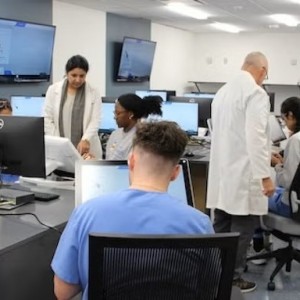
The correlation between the quality of oral hygiene and oral HPV infection in adults
Simona Chirico
Aim of the study was to detect a possible association between the objectively determined quality of oral hygiene and the presence of oral HPV.
MATERIALS AND METHODS
In this perspective analysis, 187 persons (aged 18-50) were involved. For each patient it was determined the Approximal Plaque Index (API) as a marker of oral hygiene quality, and the gingival blooding index (GBI) after probing, as a marker of active gingivitis. After the data collection, patients were included in an oral hygiene program, consisting in patients’ education regarding oral health and professional oral hygiene, repeated in individually determined intervals. In few days after the first professional oral hygiene, mucosal specimens were collected to detect the presence of HPV in its various types, some associated with benign neoplasia (low risk HPV), some having cancerogenic effects (high risk HPV). The collected data were statistically processed and analysed.
RESULTS
There is a strong positive correlation between the quality of oral hygiene and the presence of oral HPV infection. The more the API index and the GBI index increase, the more the relationship with the prevalence of HPV of any type is strong.
CONCLUSIONS
The present investigation demonstrate the positive relation between the quality of oral hygiene and the presence of oral HPV infection, based on objective measurements and considering many HPV types.
CLINICAL IMPLICATIONS
As the HPV infection is the results of oral wounds that can lead the virus to the basal layer of the mucosal epithelium, and microscopic lesions are inevitable in a gingival inflammation state, it can be assumed that improvement of oral hygiene may prevent oral HPV infection. As a consequence, good oral hygiene may contribute to oral cancer prevention.
For additional informations:
The correlation between the quality of oral hygiene and oral HPV infection in adults: a prospective cross-sectional study
 Related articles
Related articles
Oral pathology 25 November 2025
Virtual microscopy (VM) is a technology for showing microscope slides using computers and could be considered a progression of classic methodology using optical microscopes.
Oral pathology 10 November 2025
Evolution of dental informatics as a major research tool in oral pathology
Bioinformatics is a relatively new field of science that incorporates the principles of biology and computer science.
Oral pathology 04 September 2025
The classic dental diseases, caries and periodontal disease, are commonly thought to have little effect on systemic health.
Oral pathology 23 June 2025
rtificial intelligence (AI) has rapidly advanced in healthcare and dental education, significantly impacting diagnostic processes, treatment planning, and academic training.
 Read more
Read more
Endodontics 13 January 2026
Regenerative endodontic treatment has provided a treatment option that aims to allow root maturation.
Editorials 13 January 2026
Pitt’s New Digital Dentistry Labs to Provide State-of-the-Art Education and Patient Care
Three new dentistry labs at the University of Pittsburgh School of Dental Medicine will give students and residents hands-on experience with cutting edge digital dental technology while providing...
Products 13 January 2026
Revolutionizing Pediatric Dentistry with Dr. Josh Solomon: SDI Stela & Bioclear Insights
Join pediatric dentist Dr. Josh Solomon as he discusses the cutting-edge SDI Stela self-curing composite system and the Bioclear matrix system, and how these products are transforming Class II...
News 13 January 2026
Curve Dental, the leading cloud-native, all-in-one dental practice management platform, today announced its recognition as a market leader in The 2026 Dental Technology Landscape: Cloud, AI, and the...
News 13 January 2026
Patterson Companies Inc. has announced the appointment of Patrik Eriksson as Patterson Dental’s North American president. Eriksson brings a wealth of experience in the dental and medical technology...













